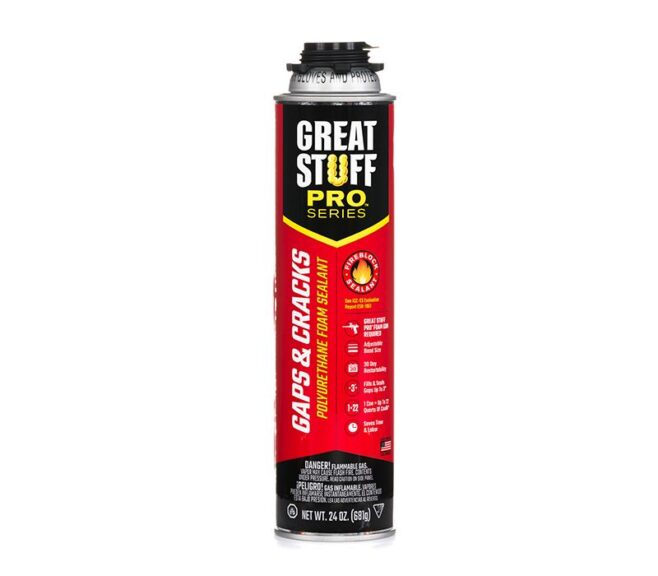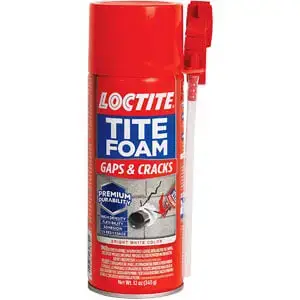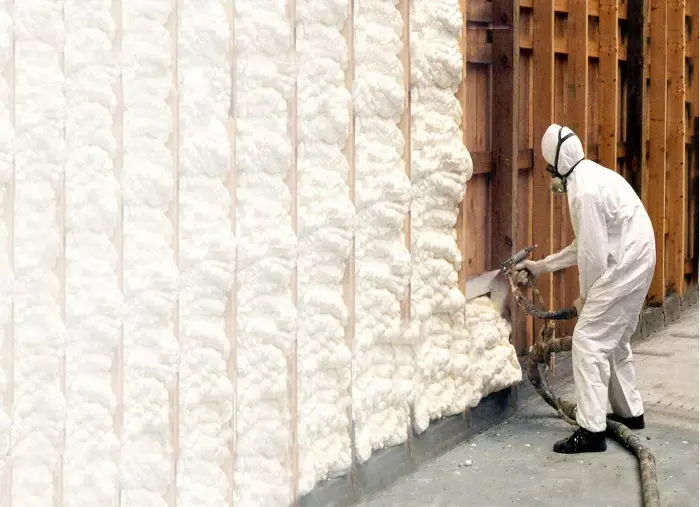Soundproofing is an essential consideration for those looking to create a quiet and peaceful environment. Whether it’s for a home, office, or studio, finding the right solution to block out unwanted noise is crucial.
One effective method that has gained popularity in recent years is using spray foam for soundproofing.
In this comprehensive guide, we will delve into the world of spray foam and explore how it can help you achieve the tranquility you desire.
Understanding the importance of choosing the right spray foam
Selecting the right spray foam for soundproofing is vital to ensure optimal results. Not all spray foams are created equal, and their effectiveness in blocking sound varies based on various factors.
By choosing the best spray foam for soundproofing, you can significantly enhance the overall acoustic performance of your space.
This means that you can enjoy a quieter environment by reducing noise pollution from outside sources or containing sound within a specific area.
Factors to consider when selecting the best spray foam for soundproofing
When it comes to choosing the best spray foam for soundproofing, several factors should be taken into account.
The first consideration is the density of the foam. Higher density foams typically offer better soundproofing capabilities due to their ability to absorb and block noise effectively.
Additionally, it is crucial to consider the expansion rate of the foam. Opting for a spray foam with a higher expansion rate ensures better coverage and fills gaps more effectively, preventing sound leakage.
Another factor to consider is the fire rating of the spray foam. It is essential to choose a foam that complies with local fire safety regulations to ensure the utmost safety in your space.
Additionally, considering the foam’s ability to resist moisture is crucial, particularly in areas prone to high humidity.
Moisture-resistant foams prevent the growth of mold and mildew, which can compromise the soundproofing performance over time.
Different types of spray foam and their soundproofing capabilities

Spray foams come in various types, each with its unique soundproofing capabilities. The most common types are open-cell and closed-cell spray foams.
Open cell foams have a lower density and are ideal for absorbing sound waves, making them highly effective in reducing noise transmission.
On the other hand, closed-cell foams have a higher density and are excellent at blocking sound.
They act as an effective barrier against noise, making them suitable for applications where noise transmission needs to be minimized significantly.
It is also worth mentioning soundproofing additives that can be incorporated into spray foam. These additives, such as mass-loaded vinyl or recycled rubber, enhance the foam’s soundproofing capabilities.
They increase the foam’s density and mass, resulting in superior noise reduction properties. Considering the specific requirements of your project, you can choose the most suitable type of spray foam and explore the option of incorporating soundproofing additives for enhanced performance.
Pros and cons of using spray foam for soundproofing
As with any soundproofing method, spray foam has its advantages and disadvantages. Understanding these can help you make an informed decision regarding its suitability for your project.
One of the primary benefits of using spray foam for soundproofing is its versatility.
It can be applied to various surfaces, including walls, ceilings, and floors, allowing for seamless integration into your existing structure.
Another advantage of spray foam is its ability to seal gaps and cracks effectively.
This prevents air leakage, resulting in improved energy efficiency and reduced utility bills. Additionally, spray foam acts as an excellent thermal insulator, keeping your space comfortable and reducing noise transfer from outside sources.
However, it is essential to consider the potential downsides of using spray foam for soundproofing. One such drawback is the cost.
Spray foam can be more expensive than other soundproofing materials, especially when considering professional installation.
Additionally, it requires proper application to ensure optimal soundproofing performance. Improper installation can lead to gaps or voids, reducing the foam’s effectiveness in blocking sound.
How to properly apply spray foam for soundproofing
To ensure the best results when using spray foam for soundproofing, proper application is crucial. Here are some key steps to follow:
- Preparation: Prepare the surface by cleaning it thoroughly and removing any debris or loose materials. Ensure that the surface is dry, as moisture can affect the adhesion of the foam.
- Protection: Protect surrounding areas or objects that should not come into contact with the foam. Covering them with plastic or tape can prevent unintentional overspray.
- Mixing: Follow the manufacturer’s instructions for mixing the foam components. Proper mixing ensures the foam expands and cures correctly.
- Application: Using a spray gun, apply the foam in a consistent and even manner. Start from the bottom and work your way up, ensuring complete coverage of the desired area.
- Curing: Allow the foam to cure fully according to the manufacturer’s instructions. This typically takes 24 to 48 hours, during which the foam expands and hardens.
By following these steps and paying attention to detail, you can achieve optimal soundproofing results with spray foam.
Real-life examples and success stories of using spray foam for soundproofing
To gain further insight into the effectiveness of spray foam for soundproofing, let’s explore some real-life examples and success stories. Many homeowners have successfully utilized spray foam to create a peaceful living environment.

One such example is Sarah, who used spray foam to soundproof her home office. By applying spray foam to the walls and ceiling, Sarah was able to eliminate distracting noises from neighboring rooms, allowing her to focus and be more productive.
Another success story comes from a recording studio owner named Alex.

Seeking to create the perfect acoustic environment, Alex used closed-cell spray foam to soundproof the studio.
The foam effectively blocked out external noise, resulting in a controlled and immersive recording experience for musicians and artists.
These examples demonstrate the practical application and positive outcomes of using spray foam for soundproofing.
Whether it’s for a home, office, or studio, spray foam provides a reliable solution for achieving the desired acoustic environment.
Recommendations for the top spray foam products for soundproofing
When it comes to achieving remarkable soundproofing outcomes, selecting the right spray foam product is paramount.
We understand your quest for the best soundproofing solutions, and we’re here to provide you with comprehensive recommendations.
Discover the top spray foam products that excel in soundproofing existing walls, ensuring you create a tranquil and noise-free environment within your space.
1. Green Glue Noiseproofing Sealant

Key Features:
- Versatile Sealant
- Vibration Dampening
- Effective Noise Reduction
While not a traditional spray foam, Green Glue Noiseproofing Sealant deserves recognition for its outstanding soundproofing attributes.
This versatile sealant excels in reducing noise transfer by dampening vibrations.
It’s an ideal complement to other soundproofing materials and works seamlessly to enhance the acoustic comfort of your space.
2. Great Stuff Pro Gaps & Cracks

Key Features:
- Versatility
- Gap and Void Sealing
- Limited Noise Reduction
For those seeking a multi-purpose solution that contributes to soundproofing, Great Stuff Pro Gaps & Cracks is worth considering.
Although not solely designed for soundproofing, this spray foam effectively seals gaps and voids, minimizing noise infiltration to some extent.
Its versatility makes it a practical choice for both insulation and modest soundproofing needs.
4. Loctite Tite Foam Gaps & Cracks White Insulating Foam Sealant

Key Features:
- Gap-Filling Expertise: Designed to fill gaps and cracks, this insulating foam sealant provides an airtight and water-resistant barrier. Its expansive nature ensures comprehensive coverage, reducing the potential for noise leakage and thermal inefficiencies.
- Sound Dampening: While primarily an insulating foam, Loctite Tite Foam can aid in sound dampening to a certain extent. Its ability to seal gaps and cracks minimizes the passage of airborne noise, contributing to a quieter indoor environment.
- Ease of Application: The foam’s user-friendly application process makes it accessible for both DIY enthusiasts and professionals. Its expansion and adhesion properties ensure a snug fit within wall voids, enhancing its soundproofing effectiveness.
Loctite Tite Foam Gaps & Cracks White Insulating Foam Sealant emerges as a valuable asset for soundproofing and insulation projects. Its ability to fill gaps and cracks, coupled with its sound dampening qualities, make it a versatile choice.
With ease of application and cost-effectiveness, Loctite Tite Foam contributes to enhanced acoustic comfort and energy efficiency in your living or working space.
Whether you’re targeting noise reduction or thermal insulation, this insulating foam sealant has the potential to elevate your environment to new levels of comfort and tranquility.
Read : How Thick Does Cork Need to Be for Soundproofing
Conclusion: Making the right choice for your soundproofing needs
In conclusion, choosing the best spray foam for soundproofing is a crucial step towards creating a quiet and peaceful environment.
By considering factors such as density, expansion rate, fire rating, and moisture resistance, you can select the most suitable spray foam for your project.
Remember to weigh the pros and cons of using spray foam and ensure proper application to maximize its soundproofing performance.
Real-life examples and success stories demonstrate the effectiveness of spray foam in creating the desired acoustic environment.
Lastly, when purchasing spray foam, consider reputable brands and products that have received positive reviews and recommendations.
By making an informed choice, you can achieve the ultimate soundproofing solution for your space.
FAQ’S about best spray foam for soundproofing
Is spray foam an effective soundproofing solution?
Spray foam can be an effective soundproofing solution when selected and applied correctly. Its ability to seal gaps and block noise makes it a popular choice for many applications.
Can I install spray foam myself for soundproofing purposes?
While it is possible to install spray foam yourself, it is often recommended to seek professional installation. Professionals have the expertise and equipment to ensure proper application and optimal soundproofing performance.
What is the expected lifespan of spray foam for soundproofing?
The lifespan of spray foam for soundproofing can vary depending on various factors such as environmental conditions and maintenance. However, with proper installation and care, spray foam can last for many years.
Does spray foam help with thermal insulation as well?
Yes, spray foam is known for its excellent thermal insulation properties. In addition to soundproofing, it can help improve energy efficiency and reduce heating and cooling costs.
